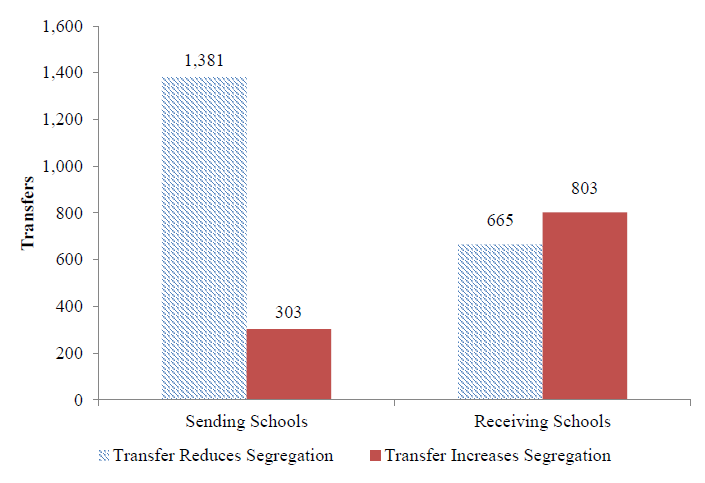As school vouchers spread across Louisiana in the 2012-13 school year, they put private schools within reach of black and Hispanic students who couldn’t afford them before. As a result, they helped reduce segregation in the state’s schools, a new study has found.
The report, one of four released Monday looking at different aspects of vouchers in Louisiana, is the first of its kind to examine the rollout of a new private-school choice program across an entire state.
The Louisiana Scholarship Program allows low-income students to transfer out of schools rated C, D or F by the state accountability system. The vast majority of participants — including 80 percent of the 1,741 students examined in the study — are black.
Researchers (Anna Egalite of North Carolina State University, Jonathan Mills of Tulane University, and Patrick Wolf of the University of Arkansas) compared the racial makeup of public and private schools to their surrounding area.* They then looked at how that makeup changed when students started using vouchers the year the program expanded statewide.
They found the “vast majority” (82 percent) of students who changed schools using vouchers reduced segregation in their former public schools. However, only 45 percent of voucher-related transfers reduced segregation in the private schools where students wound up.
Taken together, the researchers found a net gain for racial integration.
Since the positive effect of student transfers on better integrating the public schools they left is much larger than the negative effect of student transfers on reducing integration in the private schools that receive them, the net effect of the [Louisiana Scholarship Program] on school-level racial integration across both school sectors is positive.

What’s more, vouchers were more likely to aid integration in the 34 districts where public schools are still subject to desegregation orders by federal courts.
Ironically, vouchers’ impact on those desegregation efforts recently brought the program under a microscope. A federal investigation ultimately fizzled, however, and an appeals court rejected a related lawsuit last fall.
Still, the racial dynamics of school choice are complex. The new study reveals some nuances.
- Black students who accepted vouchers tended to come from public schools that had higher concentrations of black students than the surrounding community.
- They tended to enroll in private schools where concentrations of black students were lower than the public schools they left behind, but still higher than the surrounding community.
- White students tended to use vouchers to attend private schools with higher concentrations of white students than the public schools they left behind.
- Hispanic students tended to leave schools where they were over-represented, and enroll in private schools where they had been under-represented.
In other words, black and Hispanic students, who accounted for roughly nine in 10 voucher recipients, have been under-represented in private schools. By giving them greater access to private schools, the voucher program helped bring the racial makeup of Louisiana’s schools more in line with its communities.
There fore, the researchers concluded: “The results of this analysis provide reliable empirical evidence that parental choice actually has aided desegregation efforts in Louisiana.”
*To get technical, they compared schools to their surrounding Core Based Statistical Areas identified by the U.S. Census Bureau.


